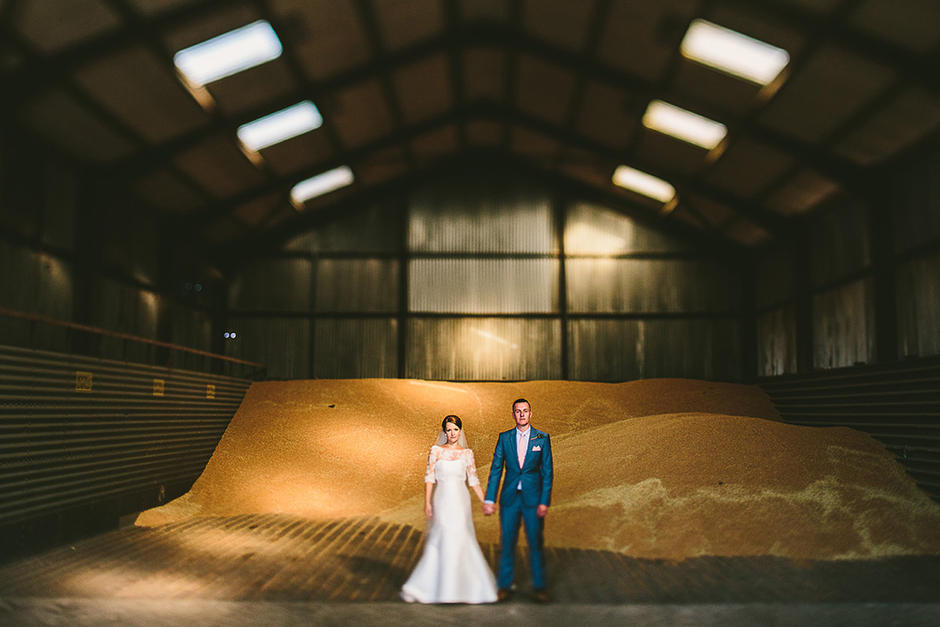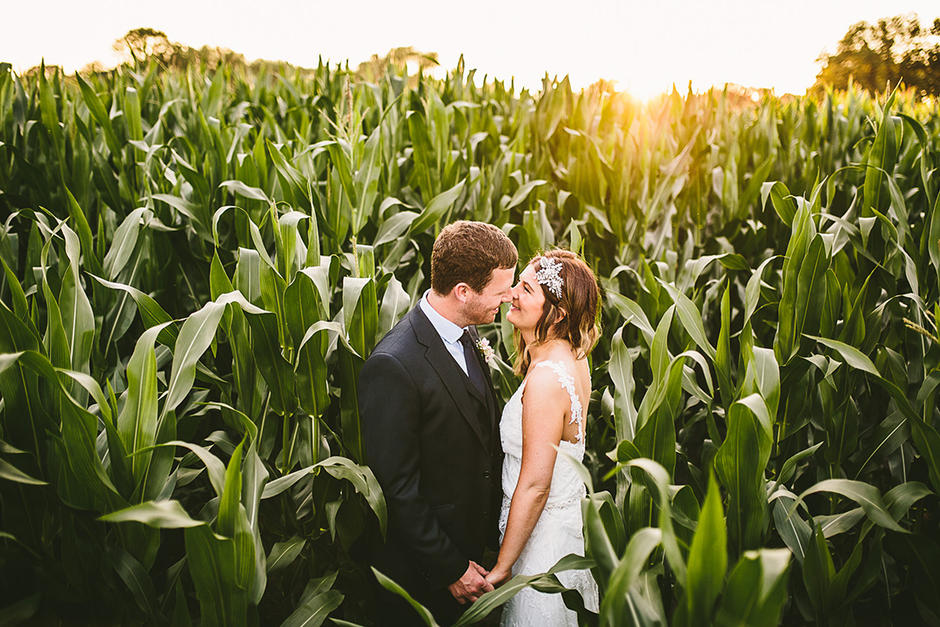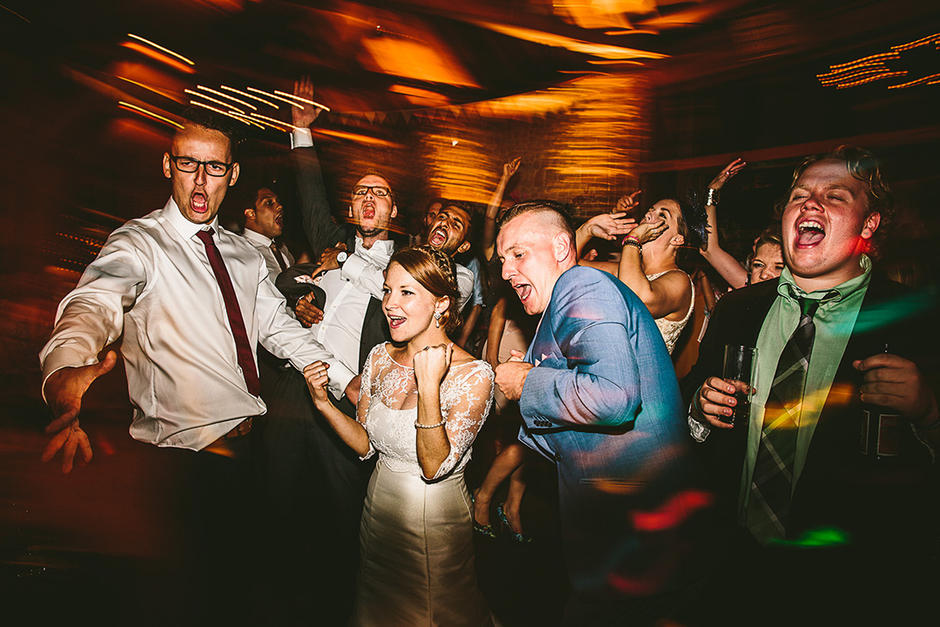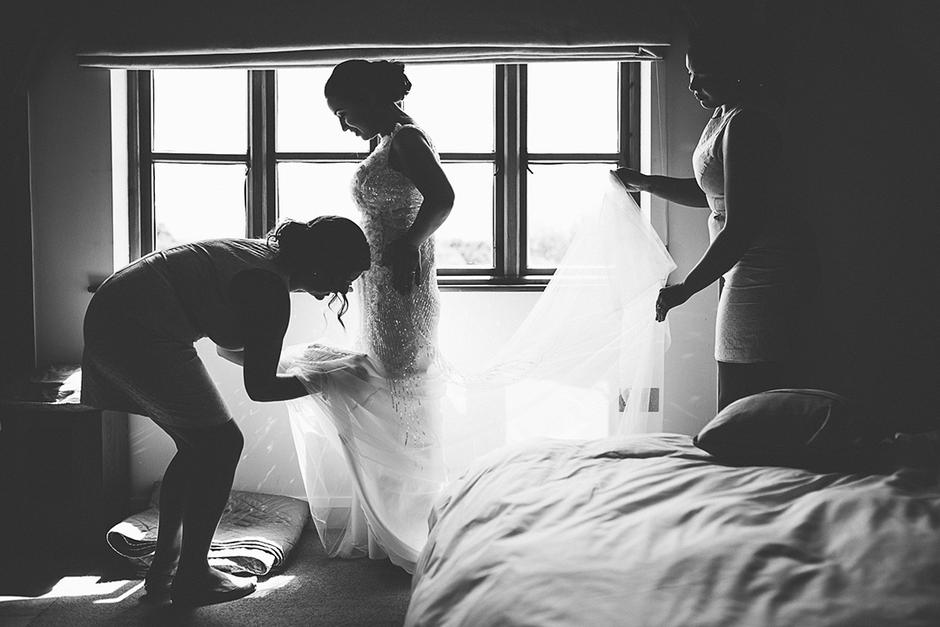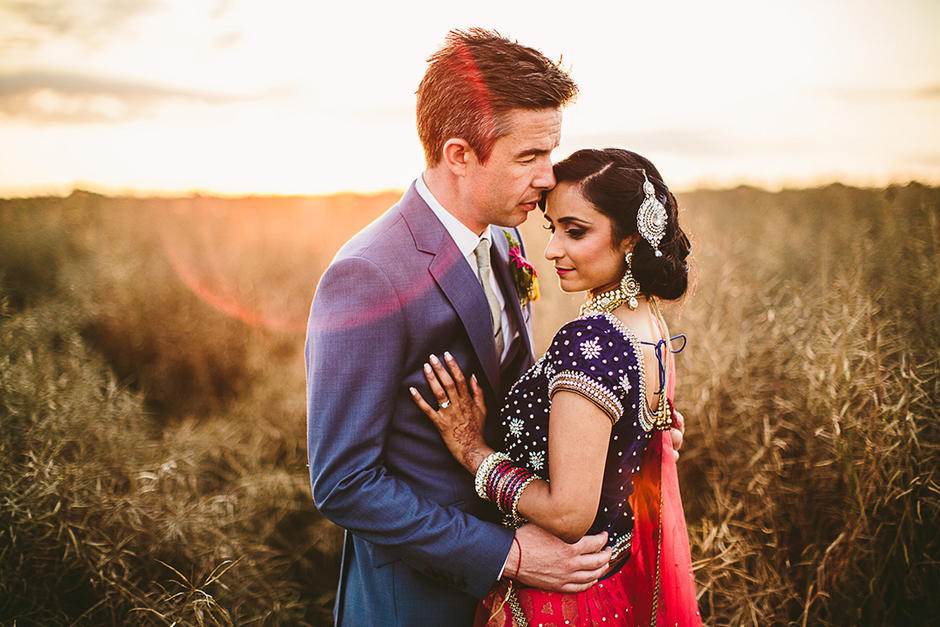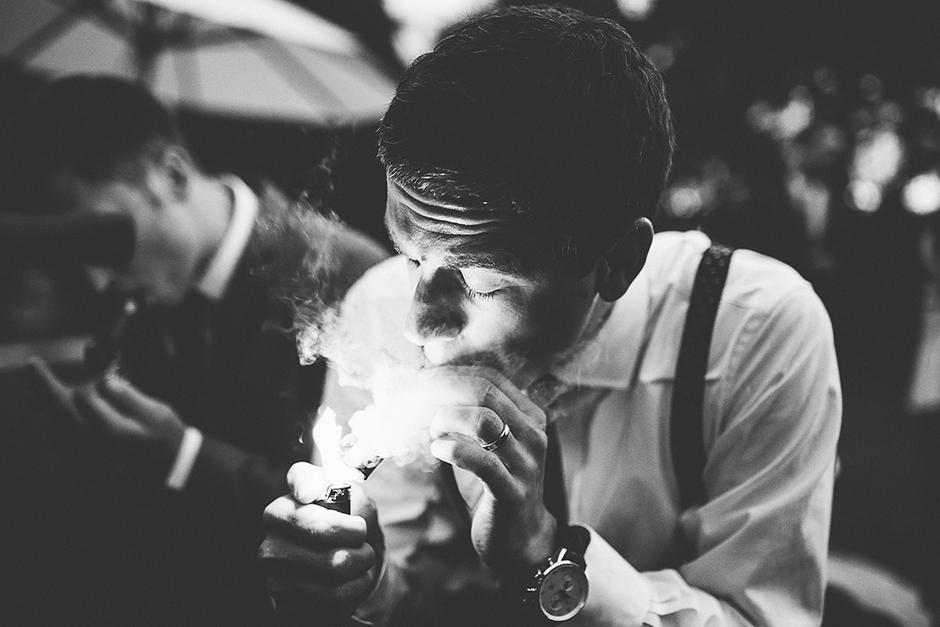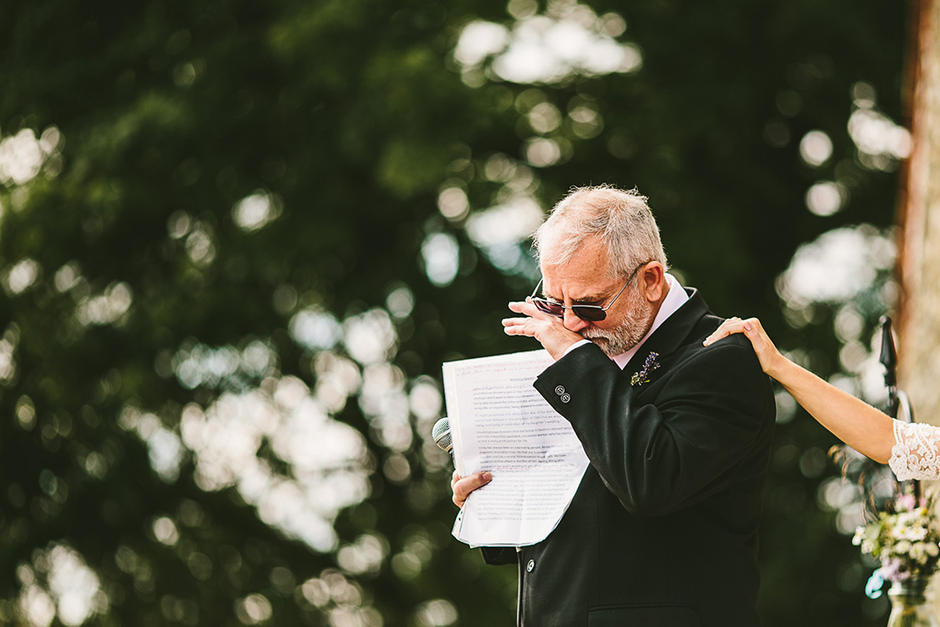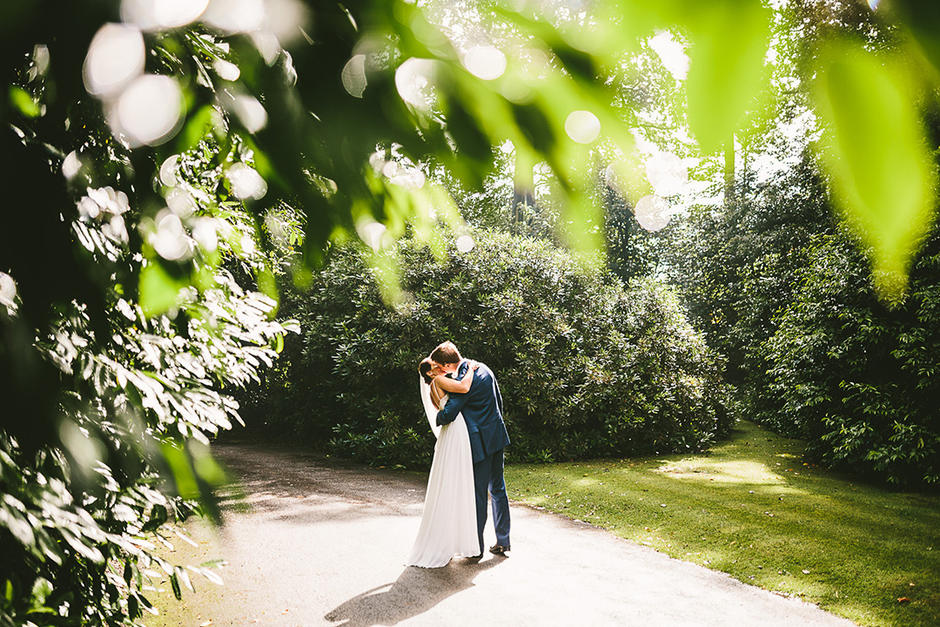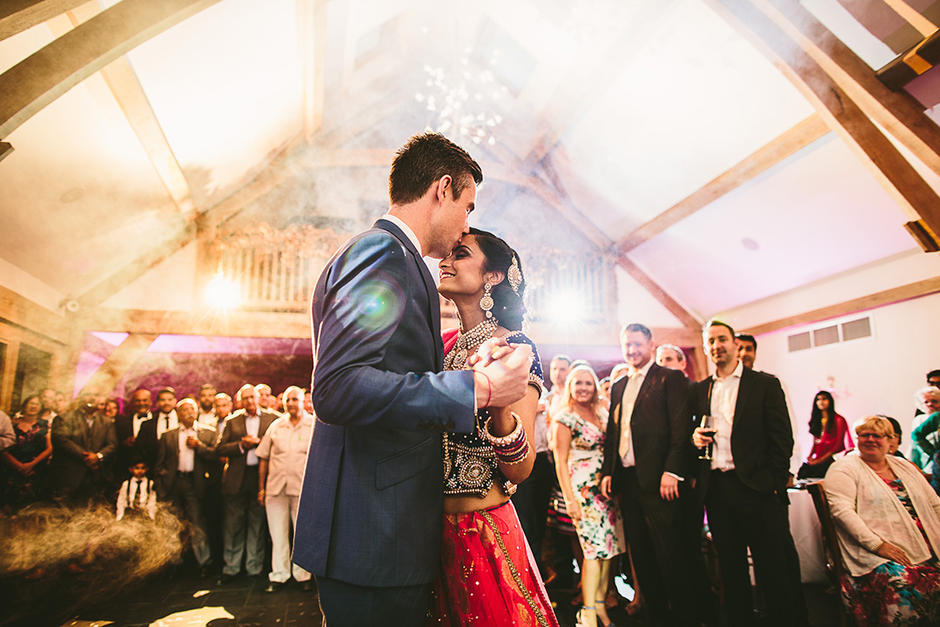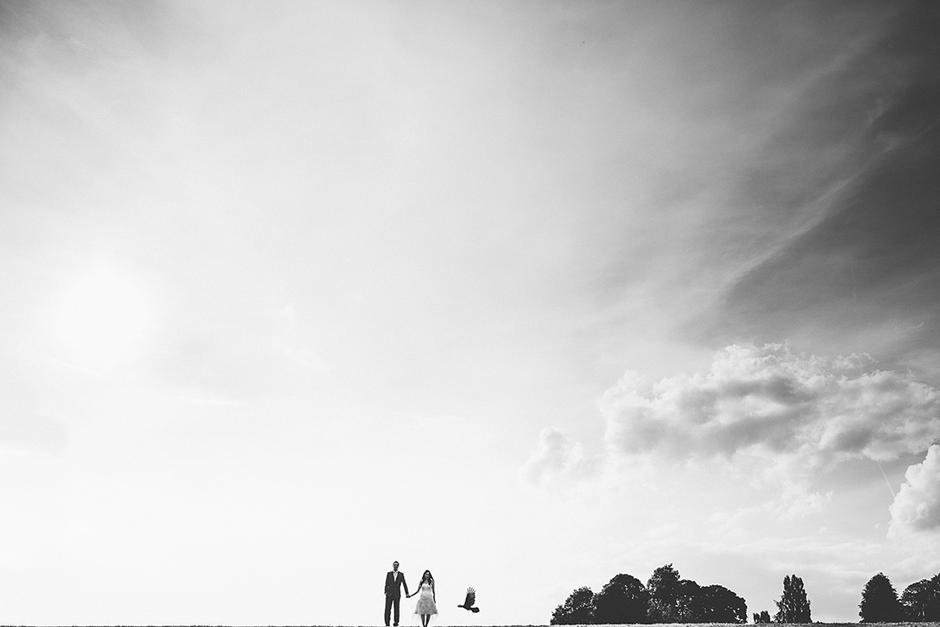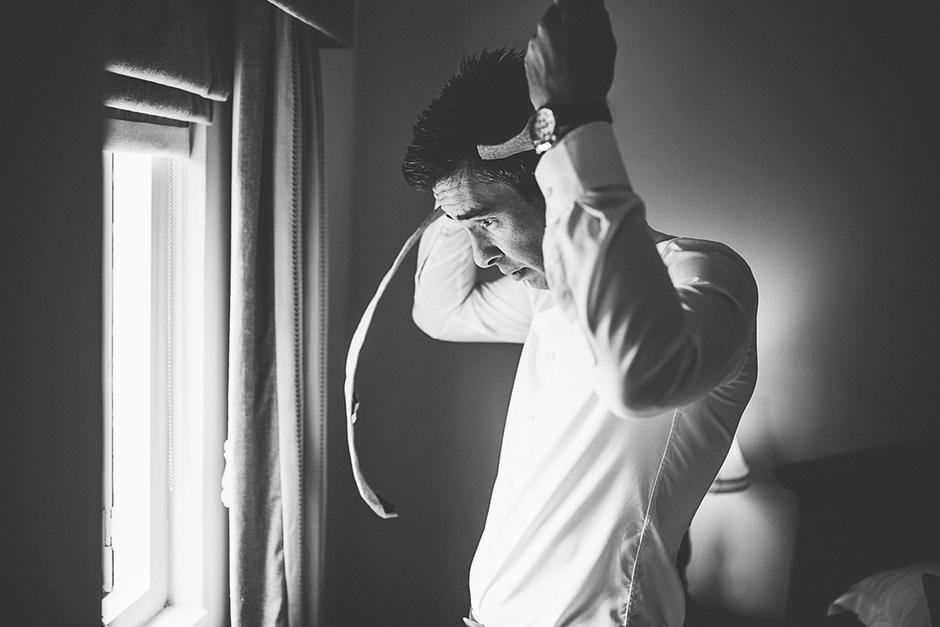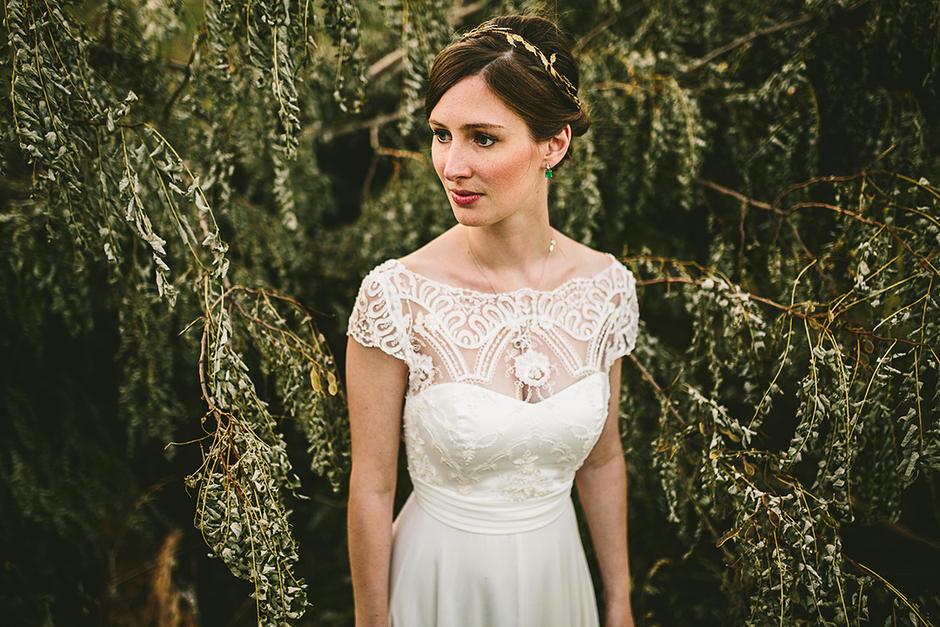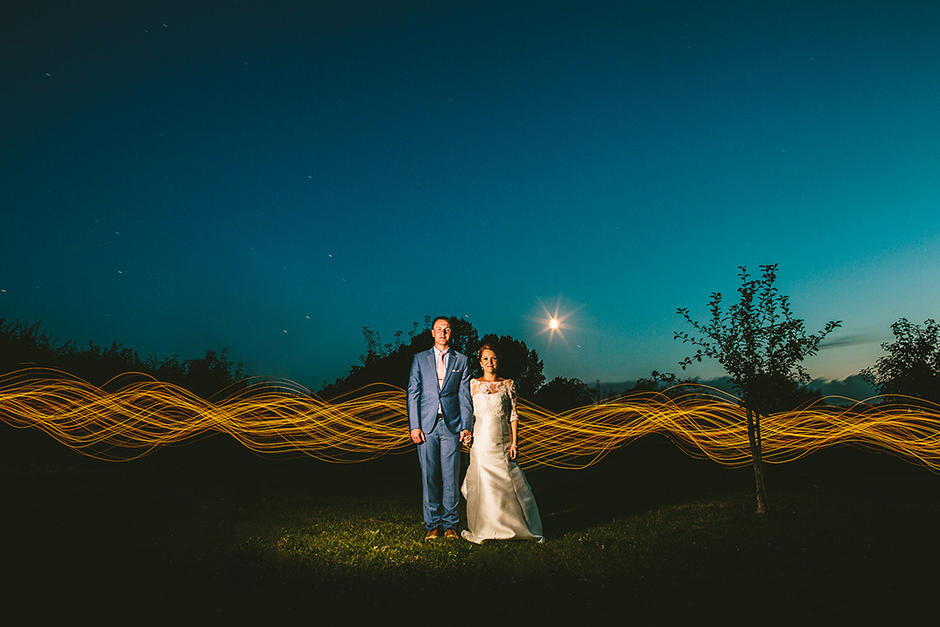To coincide with the launch of Photocrowd's wedding photography contest, our expert judge Sam Docker shares his professional wisdom on how best to approach and prepare for photographing a wedding.
There is no longer a set way to photograph a wedding. You can be as traditional or as creative as you want, but it all comes down to what inspires you and your vision.
Personally, I aim for my images to be a reflection of a couple’s day - I try to engross myself within their day, becoming a guest rather than the wedding photographer. This way, the couple and their guests open up in a way they wouldn’t if you stood at a distance with a 300mm lens. Obviously, I make sure the key shots - aisle, confetti, first kiss etc. - are all covered, but I try to shoot them in a less traditional way. The rest of the day I shoot what I see, but always considering light, composition, angle and framing.
Here are some of my tips on getting the best out of a wedding shoot:
1. Bring backup equipment
I shoot with prime lenses and I always carry two cameras. You don’t want the only body you have to start playing up in the middle of the ceremony on the day. And you want to be prepared in case you drop it as you dash over to get a shot. You need that backup, and if you don’t have a backup in place you shouldn’t be shooting a wedding.
In terms of lenses, whether you shoot primes or zooms, it’s always good to have a range of focal lengths. If I could only carry three lenses, I’d have the 24mm, 85mm and 135mm.
A couple of flashguns, a tripod, and a light stand for off-camera flash are always a good option to have, especially for the first dance. LED light panels are also excellent and a low-cost way of creating light.
This is my current kit list:
Cameras:
Canon 5D Mark III x2
Lenses:
Canon 24mm f/1.4
Canon 35mm f/1.4
Canon 45mm f/2.8 TS-E
Canon 50mm f/1.2
Sigma 85mm f/1.4
Canon 135mm f/2.0
Lighting:
Canon 600EXRT Speedlites x3
LED video lights x2
Maglite
Other stuff:
Benro Aluminium tripod
Magmod grid and gel flash modifiers
Lightstand x2
Spiderholster Dual Belt Clips
Billingham Hadley Pro Original Bag
ThinkTank Airport Accelerator
2. Consider having an assistant
If I have over 120 guests at a wedding, I always advise the couple to consider a second shooter - that way it takes the pressure off me to cover every moment throughout the day. I also know that whilst I’m tied up with the formals or couples portraits, a second shooter is still covering guests at the reception.
3. Get to know your clients and guests
You have to be personable. You have to want to know them and you have to make an effort to get to know them. If you can’t engage with your clients and their guests, whilst also knowing what settings you need to be working, they’ll never relax around you. You have to be confident in using your kit in all light and the sooner that confidence comes, the sooner you can concentrate on talking to clients and helping them forget about the fact that they’re about to be photographed.
4. Plan ahead
You need to make sure that you're there to capture the right moments. This comes through planning your day with the couple - what’s happening and when. Being able to pre-empt a moment is an art, but it comes with experience and patience. Also, you should be aware that some moments happen in a split second, so having your camera poised and ready for long spells in the day is vital.
5. When organising group shots, look for the right light
The first thing that always determines a location for group shots is light - where it is and how bright it is. For the majority of weddings throughout the spring and summer period, group shots take place during the sun's highest point in the day. If, like me, you don’t want to use fill flash to prevent extreme shadows on people’s faces, then shaded areas, or shooting into the sun are the workaround options.
6. Don't be shy
In terms of organising people, I always find a detailed list of names in each group to be essential, and then not being afraid to speak up and organise them. If you’re shy and can’t order people around in a friendly manner, you’ll lose valuable time during the reception whilst you shoot formal groups.
7. Don't be afraid to develop your own style
This just comes down to booking the right clients. If they like your work and your style, they’ll book you. So put out work that you like and want to shoot. If you want to shoot predominantly reportage, then emphasise reportage work in your portfolio. If you like creative portraits of the couple - show more of that in your work.
8. Don't be distracted by guests bringing their own cameras
You have to try and ignore this - guests will always take their own cameras and phones to weddings, but they won’t be there to cover it in the way that you cover it. They won’t have the same mindset, the same professionalism, the same kit, the same vision, and they’re unlikely to care about how the images are edited and presented. Unless of course they are professional wedding photographers every other weekend!
9. If you want to make wedding photography your profession, take it one step at a time
Once you are confident at photographing in various lighting situations, and you do this by offering free shoots to family and friends, you can then start to pitch for work. If people like the work you’ve done for family and friends, there’s likely to be a couple with a budget for your services, but don’t expect to charge that of an experienced wedding photographer - that takes time.
There are also plenty of groups and photographers out there who require assistants or second shooters, and if you can show your ability to those photographers, this is a great way to build your experience and potentially your portfolio.
Once you have some weddings under your belt, you’ll really know whether this industry is for you or not. If it is, develop a clean and simple website, work on your brand and push your work out through social media. Blogs are always a great way to promote your services, so see which blogs fit your style of photography, and the weddings you’ve shot, and submit some work.
The future of wedding photography
It’s hard to say what the future of wedding photography is given how quickly things have changed over the past few years. There seem to be more and more hugely talented individuals bursting onto the scene, which can only be good for the industry. On the flip side, there are more and more people coming into it thinking they can make a quick buck and that you can charge good money just to take some pictures with an entry level DSLR. I really hope the wider audience continues to be educated, appreciating the value and importance of the profession and costs that are involved in making awesome images.
Find out more about Sam and his work by visiting his website.
And don't forget to enter our wedding photography contest!
Enter our photo contests to win great prizes.
Register on Photocrowd for more great content.
